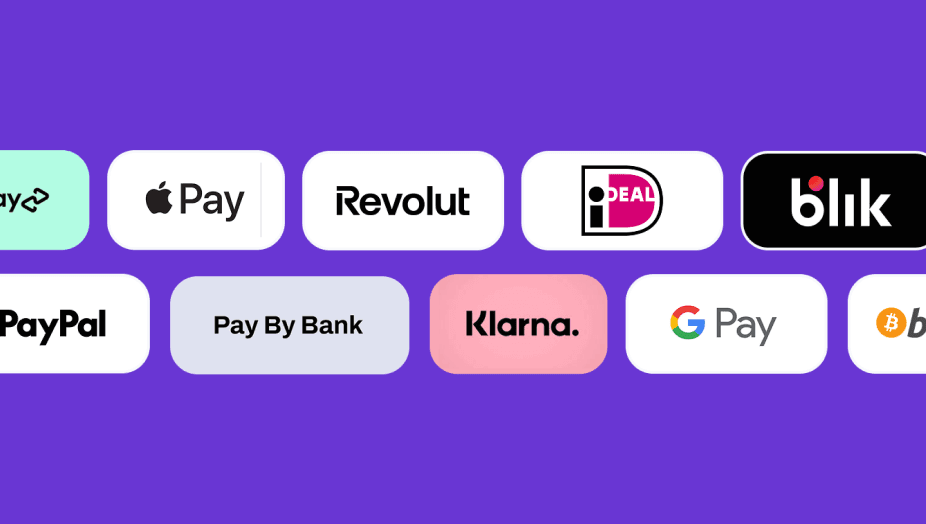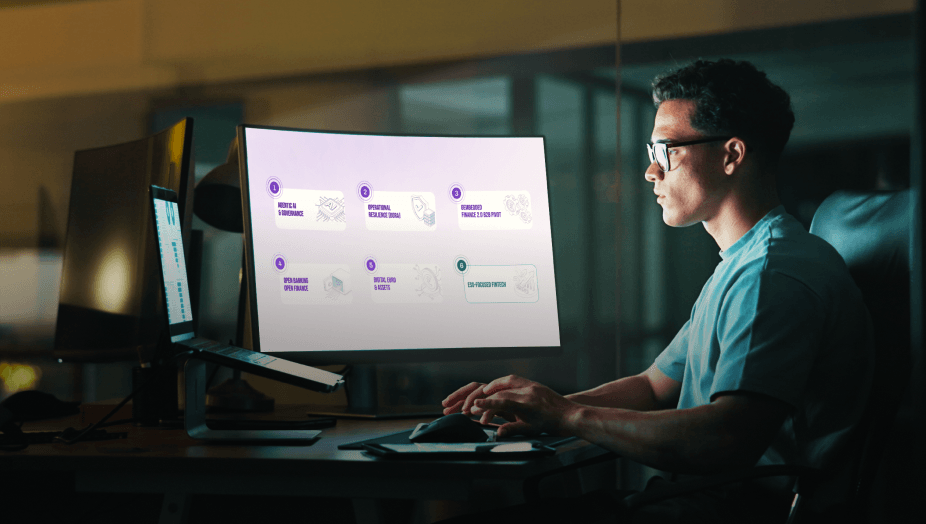
Important Disclaimer: Please note that the information, such as fee schedule, about Stripe, PayPal, Square and any other third-party services quoted in this article were taken from their public websites on 9 July 2025 unless stated otherwise. This information is subject to change, and businesses should verify current fees, features, and terms directly with providers before making final decisions.
The ability to take card payments over the phone is more than just a convenience—it's a strategic necessity. Whether you run a retail store, a remote service business, or an online shop, over-the-phone payment processing can help merchants, entrepreneurs, and service providers looking to maximise revenue and customer satisfaction.
In this article, we'll walk you through the essential steps and best practices to take payments over the phone. Whether you're a small business owner looking to expand your payment options or an entrepreneur seeking to streamline your operations, this article will provide you with the tools and knowledge you need to accept payments over the phone effectively and securely.
Understanding Over-the-Phone Payments
Over-the-phone payments means those transactions where a customer provides their credit or debit card details verbally over a phone call to complete a purchase, without the card or cardholder being physically present with the merchant. This type of payment falls under the category of card-not-present (CNP) transactions, which have become increasingly popular due to the widespread use of credit and debit cards globally.
For example: Imagine you run a bespoke tailoring service. Your customer calls to order a custom suit. During the call, they provide their debit or credit card number, expiration date, CVV code, and billing address information. You then enter these details securely into a virtual terminal to process the payment. The customer receives confirmation, and you schedule their fitting appointment. This entire transaction happens without the customer needing to visit your shop or use an online payment page.
Popularity of Card Payment Systems
The rise in card usage has made over-the-phone payments a go-to option for UK retailers aiming to offer flexible payment methods while catering to customers who prefer personal interaction. To give you an idea, UK cardholders made 2.15 billion debit and credit card transactions in the first quarter of 2025, spending around £74.9 billion.
This surge reflects UK consumers’ growing preference for quick and convenient payment options, which is influencing how merchants approach payment acceptance, including over-the-phone payments where card details are entered remotely but securely.
Why Accept Payments Over the Phone?
Surely, the data presented above suggests the rise in online payments. Still, phone payments remain essential despite digital growth because they serve distinct customer needs and business objectives that online channels cannot fully address. For example, customers still prefer or require human interaction for complex purchases (sometimes their first purchases), subscription changes, or when they need immediate assistance.
Over-the-phone payments eliminate barriers for customers who may be digitally hesitant, lack reliable internet access, or want to verify product details before committing to a purchase.
When businesses process credit card payments over the phone, they can prevent revenue loss from abandoned online transactions. When customers encounter issues with digital checkout processes or have questions that aren't answered on websites, the convenience to pay over the phone keeps the transaction alive. Additionally, phone interactions create opportunities for upselling, cross-selling, and building customer loyalty through personalised service that automated systems cannot replicate.
Let’s consider a business scenario here:
A travel agency takes bookings via phone calls, especially from older customers who prefer speaking to an agent rather than booking online. During the call, the agent answers questions about travel packages and takes payments over the phone, providing a seamless, personalised service that builds trust and encourages repeat business.
This example highlights how taking credit card payments over the phone supports personalised service and helps capture sales that might be missed through online-only channels.
One Way to Accept Payments Via Phone
For UK businesses, taking credit card payments over the phone remains a practical way to close sales when customers aren’t present. However, not all payment technologies are relevant for this scenario. If you are wondering how to accept payments over the phone, there is only one solution for you that blends convenience, compliance, and security– Virtual Terminal.
Virtual Terminal Solutions
A virtual terminal is a secure (web-based) interface that enables businesses to accept credit cards by phone by manually entering customers’ card details during a phone call. This means when a customer calls with their credit or debit card information, the merchant logs into the virtual terminal on a smartphone (or laptop, tablet) and inputs the card data to process the payment immediately. Unlike physical card machines, this over the phone payment system requires no additional hardware.
Why virtual terminals make sense:
- Compliance: Providers design their systems to help you adhere to taking credit card payments over the phone regulations (such as PCI DSS). They encrypt cardholder data and maintain secure audit logs.
- Simplicity: No need for physical terminals or additional hardware. If you can access the web, you can accept credit cards by phone.
- Rapid processing: Authorisations are instant, so you can confirm orders and releases quickly.
Why Not the Other Methods?
Mobile payment apps and physical point-of-sale devices are designed for in-person transactions, not phone payments. Online checkouts serve remote or e-commerce use cases but don’t address the classic scenario—accepting details over a phone call—without a website or integration. Virtual terminals, being manual and secure, are specifically tailored for over-the-phone payments.
Pricing for UK Virtual Terminals
Here’s a comparison of leading virtual terminal solutions widely used in the UK for over-the-phone payments.
Provider | Price per Transaction (UK) | International Card Fee | Chargeback Fee |
| Stripe | - 1.5% + 20p for standard UK cards
- 1.9% + 20p for premium UK cards | - 2.5% + 20pfor European Economic Area cards (+ 2% if currency conversion is required)
- 3.25% + 20pfor international cards (+ 2% if currency conversion is required)
| £15 per dispute* *Exclusions apply |
| PayPal | - Standard: 2.9% + 30p - Blended: 1.2% + 30p - Interchange Plus: Interchange % + 1.2% + 30p
* There is a £20 (no VAT applicable) monthly fee | - Cross-border: 1.29% (EEA)
- 1.99% (other country) (Standard & Blended)
- Currency conversion: 3% (any plan) | £14 (for UK disputes) |
| Square | 2.5% + VAT | Not explicitly stated; typically aligns with standard fees | No Chargeback fee charged for UK Merchants. |
Notes:
- Fees are indicative and may vary by business volume, or specific integrations (e.g., virtual terminal vs. API).
- Stripe and PayPal charge additional fees for international or converted transactions, common in cross-border EU trade.
- Square’s limited EU presence (e.g., UK, Ireland, France, Spain) means fewer country-specific fee variations but higher keyed-in fees for phone payments.
How to Accept Payments Over the Phone?
So, what do businesses need to know in order to accept credit cards by phone? Well, the first task is to find a payment provider that meets their requirements.
They will also need to establish a merchant account, which is a type of bank account that enables them to take payments in multiple ways.
Of course, the following process may differ slightly, depending on your chosen payment processor, but these will be the main stages.
- Step 1: Turn on your virtual terminal. This is an online version of the usual credit card terminals you see in physical stores.
- Step 2: Type in the cost of the item and press ‘Enter.’ You’ll then need to ask your customer for the payment details they want to use for the purchase.
- Step 3: The information required will include the 16 digit card number, expiry date and three digit security code (CVV) on the back of the card.
- Step 4: You may also be required to supply other information, such as the house number and numeric digits of their postcode, as part of the provider’s security measures.
- Step 5: If the information is accepted, then the machine will start to process the transaction and let you know when it’s completed.
- Step 6: Provide a receipt to the customer. Depending on the provider, this can be done digitally via email. Some businesses will give customers a reference code.
- Step 7: The final stage - apart from sending the goods or providing the services - will be to ensure you keep track of the transaction. You’ll also need to handle their data correctly, in line with regulations.
Accepting Over-the-Phone Payments: Why This Method is Outdated and Risky
Taking credit card payments over the phone is a method that's becoming increasingly outdated and fraught with risks that many UK merchants may no longer be willing to accept. Although it has historically offered a way to collect payments remotely—especially before online platforms became widespread—the disadvantages now outweigh its convenience.
For starters, verbal exchanges of sensitive card details lack encryption or secure transmission, which means the information could easily be overheard, recorded on insecure paper notes, or stored improperly on digital devices. This exposes both businesses and customers to a high risk of fraud, identity theft, and data breaches. Human errors—such as mishearing digits or accidentally recording incorrect information—can cause billing mistakes or confusion that damage customer trust. Moreover, internal risks exist, as not every employee may adhere to strict data protection standards, leading to potential abuse or misuse of card details.
On top of these vulnerabilities are strict regulatory burdens. UK merchants accepting card payments this way must comply with PCI DSS security standards and other taking credit card payments over the phone regulations, maintain detailed audit trails, and follow consumer protection laws, often requiring extensive staff training and operational protocols to minimise exposure. Despite these efforts, over-the-phone payments remain inefficient, slow—especially in payout times—and increasingly difficult to scale securely.
Thankfully, payment links offer a far superior alternative. They allow you to collect payments remotely without requiring a website or complex integration. Importantly, payment links eliminate the need to share sensitive card data verbally or in writing. Instead, customers receive a secure link via email, SMS, or messaging apps, through which they complete the payment using fully encrypted online systems. This approach drastically reduces fraud risk, simplifies compliance, and accelerates payment processing—all while maintaining the convenience of remote payment collection. For UK merchants who want to protect their business and customers without hassle, payment links strike the perfect balance between ease and security.
Introducing Noda: A Safer, Smarter Way Compared to Accept Payments Over the Phone
For merchants wanting to modernise the accept card payments over the phone payment processing, Noda offers an innovative open banking solution that’s safer, faster, and more cost-effective than traditional card payments.
Instead of collecting sensitive credit card details by phone, you can instantly create and send a secure payment link to your customer. This means no card data is shared verbally, reducing fraud risk and making the process more convenient for both sides. Customers simply complete their payment quickly and securely via their bank.
Noda connects you directly to over 2,000 banks across 28 European countries, including all major banks, enabling instant, authenticated payments with fees starting as low as 0.1% — significantly cheaper than card processing. For example, on €100,000 monthly transactions, you could save around €2,300.
Key benefits include:
- Massive reach: Access to all leading banks across the EU and UK.
- Instant payments: Real-time confirmation speeds up order fulfilment and cash flow.
- Ironclad security: Fully PSD2-compliant for top-level data protection.
- Easy integration: One API plus plugins for WooCommerce, Magento, PrestaShop, and OpenCart.
For UK merchants with physical payment needs, Noda also offers QR code payments for quick, contactless transactions.
Ready to transform your payment process?
Sign up with Noda now and start accepting fast, secure payments the smart way.
FAQs
Is it safe to pay over the phone?
Yes, paying over the phone can be safe when businesses follow proper security protocols. Legitimate businesses use encrypted payment processing systems, comply with PCI DSS requirements, and implement fraud prevention measures. However, customers should verify they're dealing with reputable businesses and avoid sharing payment information with unsolicited callers.
What is the best way to take card payments over the phone?
The best approach depends on your business needs, but generally involves using a secure payment processing system with PCI DSS compliance, proper staff training, and robust fraud prevention measures. Virtual terminals and integrated payment software often provide the best combination of security, convenience, and features for most businesses.
Latest from Noda

Alternative payment methods: 2026 Guide for Businesses

Open Banking Payments: SME E-Commerce Guide (UK)

Payment Methods in Spain 2026: A Guide for Online Merchants

